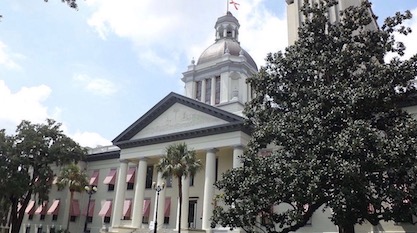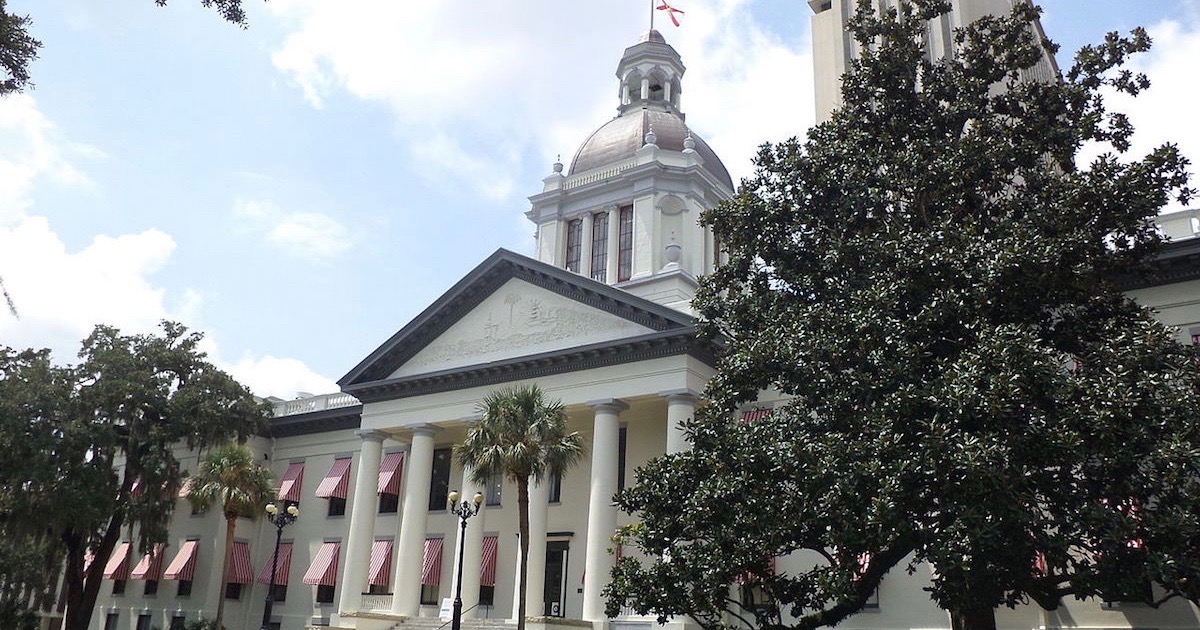 Education
Education
 Evolution
Evolution
 Free Speech
Free Speech
Shock: Florida Laws Would Give Floridians a Say on Science Education


An article in Nature warns about two bills proposed in Florida that the legislation “would allow people who live in the state to review and recommend instructional materials to be used in schools.” Glenn Branch of the National Center for Science Education is, of course, quoted liberally, saying that the effect would be to empower “creationists” and even “flat-Earthers to pester their local school boards about their hobbyhorses.”
Imagine, citizens pestering their elected representatives! Terrible.
Actually, while I’m not endorsing them, these proposed measures don’t seem to be quite as political or misguided as Nature or the NCSE paints them. One piece of legislation would allow school boards to adopt standards that are more rigorous than Florida’s current standards, and includes language requiring that teaching of controversial scientific theories be done objectively. Another bill would allow citizens to propose instructional materials.
On the standards bill, Nature notes:
These bills would also require “controversial theories and concepts” in science to be taught in a “factual, objective and balanced manner”. This language can be problematic, [Glenn] Branch [of the NCSE] says. “When we teach that the Earth is round, are we imbalanced if we don’t teach that the Earth is flat?”
Wait a minute. Unlike the shape of the earth, the mechanisms of evolution are hotly contested in mainstream science. Unfortunately, it is all too common for students to receive one-sided teaching about neo-Darwinism, amounting to indoctrination. That’s not “objective.” So, as far as it pertains to evolution, a bill that encourages responsible, factual instruction about scientific evidence on both sides — does Darwinian theory adequately explain biological diversity or not? — sounds pretty good! Of course, where there is scientific controversy, science should be taught in a balanced manner. Isn’t science all about critical thinking, weighing and examining data? Bringing a “flat Earth,” or “creationism,” into the discussion doesn’t make sense.
On the instructional-materials bill:
Florida’s instructional-materials bills could alter classroom content in a less direct way. Allowing tax-payers to have a say in what goes on in public schools seems innocuous, says Brandon Haught, who teaches environmental science at a secondary school in Orange City, Florida. In reality, the bills, together with last year’s law, expose schools to activists that oppose the teaching of topics such as evolution and global warming, he says.
What’s more, the bills and the law use language that makes it easier for individuals to target such topics, Branch says. The documents state that educational materials should be “balanced” and “noninflammatory”, but they don’t specify who decides whether something is inflammatory, he says. “It’s a real worry that those labels will be slapped onto any kind of material that people oppose.”
Are we so concerned about citizen influence that we think letting activists have more say, “targeting” subjects they care about, is a threat to science education?
I don’t consider these substantive arguments. Someone might be able to make a cogent case that these bills would be less than optimum if they generated more expenses for school boards or made it difficult to efficiently incorporate curriculum. But the idea that citizens and legislators weighing in will degrade the science education their children receive?
That’s un-American. It’s also dogmatic, not open-minded and scientific.
Photo: Florida State Capitol, by Michael Rivera (Own work) [CC BY-SA 3.0], via Wikimedia Commons.
